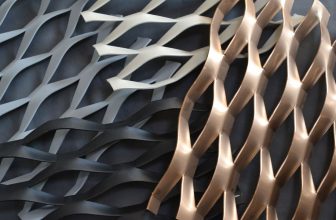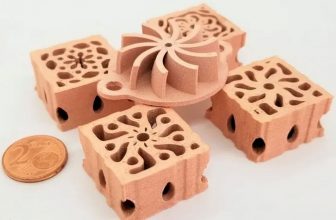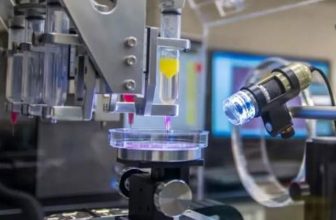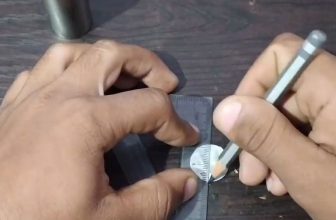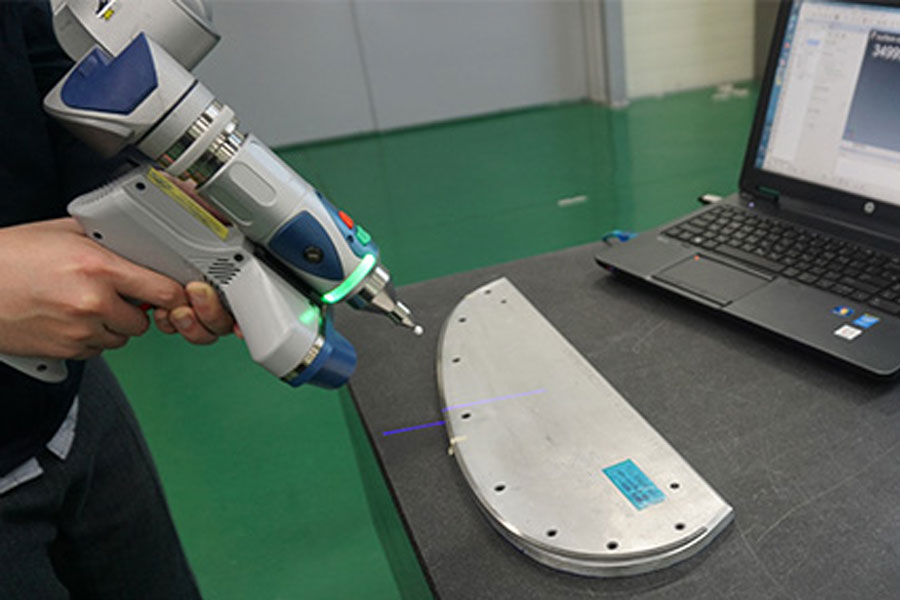
Before an airplane takes off for the first time, it must go through numerous testing and certification procedures. The level of detail and the required processes are very demanding-even the tiny metal parts used on the windows have to be thoroughly inspected before being installed on the aircraft. These measurements are necessary to ensure the safety of passengers.
South Korea’s aerospace component manufacturer Hizeaero Co. Ltd. is one such company that uses laser scanners to carry out safety inspections in its projects.
Hizeaero was founded in 1999 and initially supplied wings to domestic and international aircraft manufacturers. Later, the company expanded its business scope to the entire aircraft manufacturing process from aircraft assembly, refurbishment and maintenance, to aircraft component production (such as sheet metal processing and surface treatment). Many aviation giants are Hizeaero customers.
In 2016, Hizeaero signed a supply contract with the Chinese aircraft manufacturer Tianjin Boeing Composites (BTC), a subsidiary of Boeing. Titanium foil is one of the key components that Hizeaero must supply. This is a film used to embed in aircraft window frames.
Titanium foil is an ultra-thin titanium film with a thickness of only 0.003 inches (0.076 mm). Hizeaero faces severe challenges in both production and inspection. The above-mentioned challenges became the main driving factors that prompted Hizeaero to purchase laser scanners.
Although titanium is a very hard metal, its behavior is quite different when it is only 0.003 inches thick. It has high ductility and can easily bend even with the smallest pressure. Only the handling of titanium foil is a big problem.
Therefore, Hizearo’s quality assurance team cannot use their existing fixed coordinate measuring machine (CMM) to measure titanium foil. Because this metal material is very thin, it cannot be detected using traditional contact measurement methods. When looking for a suitable non-contact scanning device to measure titanium foil, they came across a portable laser scanner.
Hizeaero experienced non-contact measurement equipment for the first time. Some of these products can either use the probe for contact measurement, or use its integrated Laser Line Probe (LLP) for non-contact measurement. The scanning speed of LLP reaches 560,000 points/second, and even the most complex parts can capture very detailed features.
The laser scanner is easy and free to operate, providing users with maximum versatility.
After the titanium foil manufacturing process is over, Hizeaero uses a laser scanner to scan the titanium foil to ensure it meets the original design specifications. Using a laser scanner, the measurement results of the titanium foil can be obtained quickly in a few seconds without direct contact with the titanium foil. In addition, many information including length, R value and angle can be obtained.


